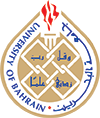Strategic Approaches to Water Resource Management
COURSE OVERVIEW
This micro-credential course provides a comprehensive foundation in strategic planning and integrated approaches essential for effective water resource management. It explores the interconnected nature of water resources and presents tools and frameworks for sustainable, long-term planning that balances water availability, quality, and demand across different sectors.
Participants will learn about the key principles of Integrated Water Resources Management (IWRM) and systems thinking, focusing on how to address water challenges while considering environmental, social, and economic impacts. Through hands-on activities and case studies, learners will gain skills in scenario analysis, risk assessment, and decision-making methods crucial for developing sustainable water management strategies.
KEY TOPICS COVERED
- Foundations of Integrated Water Resources Management (IWRM)
- Systems Thinking and Water Sector Modeling
- Scenario Planning and Strategic Foresight
- Risk Assessment and Mitigation in Water Management
- Water Demand, Efficiency, and Conservation
- Stakeholder Engagement and Collaborative Management
- Capstone Project: Developing a Strategic Water Management Plan
TARGET AUDIENCE
The Strategic Approaches to Water Resource Management micro-credential is designed for professionals in water resources and environmental sectors, industry partners in water management, government officials involved in water policy, adult learners pursuing career advancement, faculty and staff in related fields, and graduate students in environmental and engineering disciplines. This diverse audience gains specialized training in sustainable water resource planning, governance, and management.
Bachelor’s degree in science and/or engineering
The Strategic Approaches to Water Resource Management micro-credential is delivered in a blended format, providing flexible learning pathways that accommodate professional schedules and individual needs.
-
- In-person Face-to-Face Contact with Teaching Staff: 21 hours (3 hours per week over 7 weeks)
- Synchronous Online Contact with Teaching Staff: 14 hours (2 hours per week over 7 weeks)
- Asynchronous Online Learning: 21 hours (recorded tutorials, 3 hours per week over 7 weeks, accessible anytime)
- Guided Project Work: 24 hours (individual program assignment, completed independently)
Peer-to-peer engagement is supported through discussion forums and group interactions within the online learning platform, allowing participants to collaborate, share insights, and engage in flexible, self-directed exchanges.
- Case Studies (20%): Engage in class discussions on four selected case studies focused on water resource management challenges, with at least one case study developed by the learner. This component evaluates learners’ ability to analyze real-world scenarios and propose sustainable solutions.
- Practical Assignments (30%): Complete two specific practical tasks during the course, such as GIS-based water resource mapping or hydrological data analysis. These assignments test learners’ skills in applying technical tools and methodologies relevant to integrated water management.
- Final Project (50%): Develop a comprehensive water management plan for a specific region. This includes creating an analytical tool that collects, analyzes, and displays water-related indicators through dashboards or scorecards. A detailed report describing the entire project development cycle, data analysis, and decision-making insights should accompany the final submission.
Instructor
Domain
Date
To be announced
No of Students
30
Hours
80 hours
Duration
7 weeks
Credit Points
2
Fees
500 BHD
Level
Language
English
Venue
Classroom / Computer Lab
Time
– Sat 9:00 AM – 12:00 PM
– Thu 5:00 PM – 7:00 PM
For further Information, please contact:
Mr. Mohammed Al-Hooti
Tel: +973-33777339
Email: malhooti@uob.edu.bh
